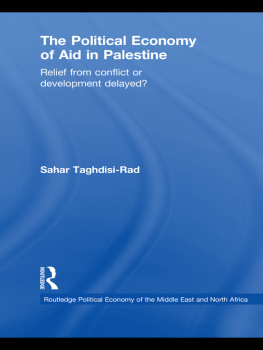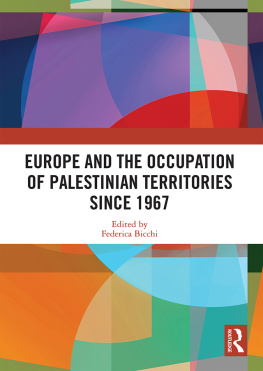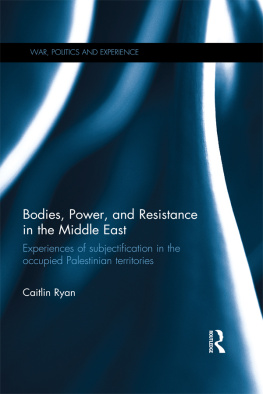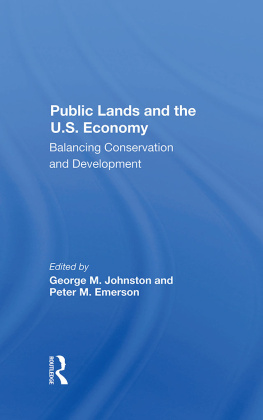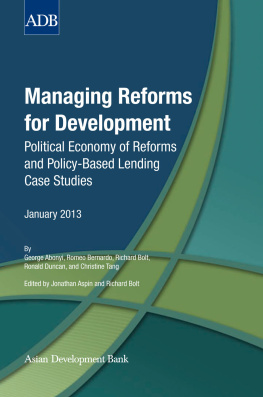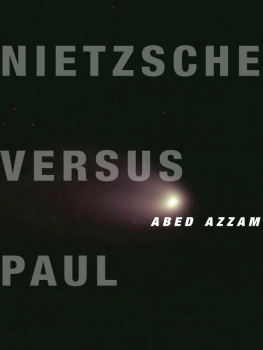ROUTLEDGE LIBRARY EDITIONS:THE ECONOMY OF THE MIDDLE EAST
Volume 24
THE PALESTINIAN ECONOMY
First published in 1988
This edition first published in 2014
by Routledge
2 Park Square, Milton Park, Abingdon, Oxon, OX14 4RN
and by Routledge
711 Third Avenue, New York, NY 10017
Routledge is an imprint of the Taylor & Francis Group, an informa business
1988 Welfare Association
All rights reserved. No part of this book may be reprinted or reproduced or utilised in any form or by any electronic, mechanical, or other means, now known or hereafter invented, including photocopying and recording, or in any information storage or retrieval system, without permission in writing from the publishers.
Trademark notice: Product or corporate names may be trademarks or registered trademarks, and are used only for identification and explanation without intent to infringe.
British Library Cataloguing in Publication Data
A catalogue record for this book is available from the British Library
ISBN: 978-1-138-78710-0 (Set)
eISBN: 978-1-315-74408-7 (Set)
ISBN: 978-1-138-81016-7 (Volume 24)
eISBN: 978-1-315-74470-4 (Volume 24)
Publishers Note
The publisher has gone to great lengths to ensure the quality of this reprint but points out that some imperfections in the original copies may be apparent.
Disclaimer
The publisher has made every effort to trace copyright holders and would welcome correspondence from those they have been unable to trace.
First published in 1988 by
Routledge
a division of Routledge, Chapman and Hall
11 New Fetter Lane, London EC4P 4EE
Published in the USA by
Routledge
a division of Routledge, Chapman and Hall, Inc.
29 West 35th Street, New York NY 10001
1988 Welfare Association
Printed in Great Britain by
Billing & Sons Ltd, Worcester
All rights reserved. No part of this book may be reprinted or reproduced or utilized in any form or by any electronic, mechanical, or other means, now known or hereafter invented, including photocopying and recording, or in any information storage or retrieval system, without permission in writing from the publishers.
British Library Cataloguing in Publication Data
The Palestinian economy: studies in
development under prolonged occupation.
1. Palestine. Economic development,
1918-1985
I. Abed, George T.
330.95694'04
ISBN 0-415-00471-3
Library of Congress Cataloging-in-Publication Data
ISBN 0-415-00471-3
Contents
George T. Abed
Roger Owen
Raja Khalidi
Antoine Mansour
ZiadAbu-Amr
Mohammed K. Shadid
Hisham Awartani
Bakir Abu Kishk
Laurence Harris
Atif A. Kubursi
Alex Pollock
YusifA. Sayigh
Ibrahim Dakkak
Harold Dick
George T. Abed
This volume brings together the principal results of a symposium on Economic Development under Prolonged Occupation held at St Catherines College, Oxford University, England during the period 3 to 5 January 1986. The symposium was sponsored by the Welfare Association, a private, non-profit, development assistance foundation in Geneva, Switzerland. The basic aim of the symposium was to stimulate research and discussion on issues of economic development in the Palestinian occupied territories, especially in light of the enormous complexities introduced into the process of economic development by a prolonged and repressive occupation. The symposium brought together a number of development economists,representatives from development assistance organisations and other individuals engaged in one facet or another of social and economic development in the occupied areas. They presented papers,exchanged experiences and generally struggled with the difficult issues raised by the search for concepts and methodologies suitable for the situation at hand.
In all, eighteen research papers were prepared, of which fifteen were discussed at the symposium. The present volume contains thirteen of these papers, together with an introduction and a summary chapter prepared by the editor. The selection of papers for publication was made with a view to preserving the thematic unity of the various contributions, while keeping in mind limitations of space. In this regard, important and highly stimulating contributions to the symposium were made on relevant development experiences in other areas of the developing world, notably in South Africa (by Stanley Greenberg and Harold Wlpe) in the Basque Country of Spain (by Jose Ramon Elorza) and in Sri Lanka (by A.T. Ariyaratne), as well as on other issues related to the main theme of the symposium by Bassam Saket and Abbas Abdul-Haq. Some of this valuable work is referred to in the concluding chapter but, regrettably, not all of it could be included in the volume.
This work, as can be expected, reflects both the strengths and the weaknesses of a book of essays. It comprehends numerous contributions and a variety of viewpoints, yet it contains the inevitable, and hopefully less than irksome, degree of duplication.Some subjects have been treated more fully than others, while othersstill may have been left out altogether. Other limitations relate to the passage of time and the inevitable intrusion of events since the material was prepared (for the most part during 1986). This is especially relevantin the ever-changing and unpredictable conditions surrounding the question of Palestine in general and the occupied territories in particular. Some of the intervening developments would have merited inclusion and many would have provided useful updates,but probably none would have required fundamental changes in the central themes of this book. In any event, it is hoped that the omissions would prove minor in relation to the wealth of material presented.
A more serious limitation, and a very specific one in this context,is the heavy reliance of researchers on data generated by Israeli sources,official and otherwise. The absence of sovereign Palestinian national institutions in the occupied areas and Israeli restrictions on the conduct of comprehensive and regular surveys to generate original data have forced Palestinian researchers into the troubling position of having to view their own society and economy largely through the eyes of their oppressors. Most of the researchers who work in this area are of course aware of this fact and some have tried to ameliorate its implications,but very few can, in the present circumstances, escape its effects on their analyses and conclusions. It is hoped that this state of affairs will stimulate further research into the statistical sources and methods of Israeli-generated statistics on the occupied areas thereby shedding light on their inherent limitations and paving the road for the eventual development of an authentic Palestinian data base.
Numerous individuals participated in organising the symposium and in the subsequent preparation of the material for publication. Their counsel and assistance are gratefully acknowledged. I would like to express my great appreciation for the work of the Symposium Steering Committee, and particularly that of the host members at Oxford, Roger Owen and Robert Mabro. A debt of gratitude is owed especially to the late Professor Bakir Abu Kishk whose death, in June 1986, deprived us all of a valued colleague, a dedicated patriot and a respected scholar.Special thanks are due Mr Lakhdar Ibrahimi who, as a keynote speaker at the symposium and as a constant friend of the Association, provided keen insights and challenging thoughts on development in an emancipatory context. CamilliaFawzi el-Solh, as symposium manager and in the numerous other essential roles she so capably executed, also deserves special thanks. Mohammed Shadid, John Richardson and Margaret Owen provided valuable assistance in various phases of preparing the material for publication and I am grateful to them. Other friends and colleagues graciously agreed to read some of the materialand their observations and comments are greatly appreciated. Needless to say, none of these persons should be held in any way responsible for remaining errors or deficiencies.




